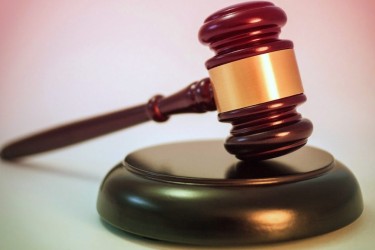Letter to the Editor: Proposed Constitutional Amendments Threaten Independence of Judiciary
By DEBORAH R. GROSS
The Legal Intelligencer
These proposed constitutional amendments are a direct attempt to threaten the judiciary based on one party’s displeasure with rulings by the court.
To The Legal:
The legislature in Harrisburg is once again operating in a stealth and nontransparent fashion. Two bills proposing two constitutional amendments threatening the independence of the judiciary (House Bills 1880 and 2141) were introduced and passed by the House Judiciary Committee in less than one week. First, constitutional amendments should not be taken lightly. Second, these bills exacerbate the evils of electing judges.
As recently stated by our Pennsylvania Supreme Court in League of Women Voters of Pennsylvania v. Degraffenreid, “The principle that the people have the inviolable right to make the ultimate choice on whether their Constitution will be changed was firmly enshrined in our organic charter of governance.” Constitutional amendments deserve public hearings, testimony from the community and from experts, and open discussions and communications. None of which occurred here. Lawyers and bar associations were not asked for their input. Instead, the bills were presented and passed almost strictly on party lines. Each bill was given 10 minutes of discussion, and not many members of the committee were present, instead having already submitted their vote by proxy. In other words, they had predetermined that they had no interest in entertaining discussion.
These proposed constitutional amendments are a direct attempt to threaten the judiciary based on one party’s displeasure with rulings by the court. Since the state Supreme Court’s decision in 2018 that Pennsylvania’s congressional districting maps were unconstitutional, there have been repeated attempts by the legislature to intimidate and influence the courts through constitutional amendments, calls for impeachment, and negative statements about the courts.
Judicial elections have many potential dangers. Judges have to campaign and raise ever-increasing larger sums of money. Judges cannot make campaign promises as their job is to remain impartial and make decisions based on the law and facts. Nevertheless, these bills propose to increase the campaigning required by judges.
One bill wants to eliminate retention elections, and replace them with full-fledged elections. Campaign fundraising by a sitting judge in a contested election has even harsher implications. The sitting judge cannot ask for moneys from parties or attorneys who currently appear or have matters before her. The sitting judge cannot comment on decisions the judge has rendered. Yet the opponent can decide to make a decision an issue in the election.
The second bill wants to limit the number of terms which our appellate court judges can hold their position. This has the potential to discourage qualified candidates and encourage those candidates who know they have substantial financial backing. Three seats on our Supreme Court in 2015 raised in excess of $25 million. Candidates for the one available Supreme Court seat in 2021 raised approximately $6 million. This is a tremendous amount of fundraising required which is potentially influential and conflict creating. We are now requiring our judges to become expert fundraisers. Our state legislators don’t even need to raise these amounts.
Judges owe their loyalty to the law not to constituents. Judges’ obligations to the voters is to apply the law and adhere to the Code of Judicial Conduct. Requiring judges to be politicians and run for election, reelection, raise ridiculous amounts of moneys, and be concerned with issuing decisions that could displease voters is simply bad and dangerous to our democratic beliefs.
Deborah R. Gross
CEO of Pennsylvanians for Modern Courts
Reprinted with permission from the December 30, 2021 edition of The Legal Intelligencer © 2021 ALM Media Properties, LLC. All rights reserved. Further duplication without permission is prohibited, contact 877-256-2472 or reprints@alm.com.
